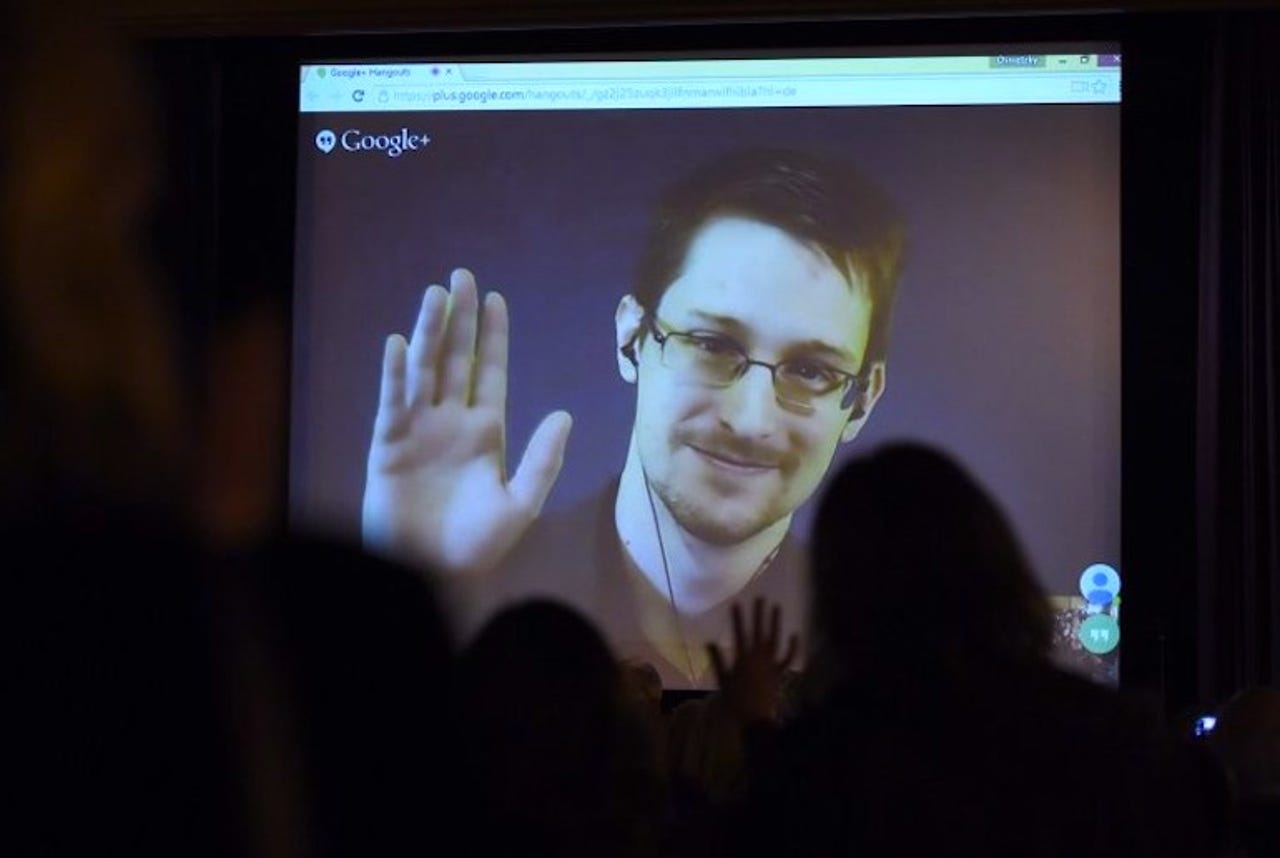Edward Snowden: Don't fear Trump, fear the surveillance state


NSA whistleblower Edward Snowden. (Image: file photo)
Edward Snowden once said that a dystopian America is just an election away.
America just had one. And, for a lot of people, things don't seem so great. There are protests in the street, social media went into meltdown, and there were even tears at the White House.
But the former government contractor turned whistleblower seemed less concerned about the whole affair than some might have expected.
Security
In an unexpectedly upbeat conversation, Snowden told an audience at the Pathé Tuschinski theater in Amsterdam via a live stream on Thursday that Americans should be "cautious on putting too much faith or fear in elected politician".
Snowden's gave his first remarks since Donald Trump was unexpectedly elected the next US president on Wednesday morning, contrary to numerous polls putting rival candidate Hillary Clinton in the lead.
The whistleblower recounted how Obama, prior to his election in 2008, would close the Guantanamo prison camp in Cuba, end drone strikes and extrajudicial killings, and made shutting down the warrantless wiretapping programs of the previous administration a campaign platform to run on.
"We all put a lot of hope on [Obama] because of this," said Snowden said. "But, unfortunately, once he took that office, he didn't actually fulfill those promises."
"Politicians do what they think will gain them support," he said.
"If we want a better world, we can't hope for an Obama, or fear a Trump. We should build it ourselves," he said.
In other words, citizens should think about their own security and privacy rather than relying on a politician to make changes. He said that Americans need to think about how to "defend the rights of everyone, everywhere," rather than defending against Trump in high office.
Snowden knows all too well the state of the surveillance state. In 2013, he leaked classified national security and intelligence secrets to journalists, such as the controversial PRISM surveillance program that ensnared nine major tech companies and included the wiretapping of foreign leaders and massive industrial espionage of the foreign private sector.
But even now that the election is over, not everyone is so optimistic about the outlook. Some are warning that the US' vast intelligence gathering machinery will be turned over to a "maniac".
In a little over two months, Donald Trump will "control a vast, unaccountable national security and military apparatus unparalleled in world history," said Trevor Timm, executive director at the Freedom of the Press Foundation, in a blog post. "The nightmare that civil libertarians have warned of for years has now tragically come true: instead of dismantling the surveillance state and war machine, the Obama administration and Democrats institutionalized it -- and it will soon be in the hands of a maniac."
It was Snowden, who in his public debut, just days after reporters first published stories related to the leaks, warned of the threat of a new leader flipping the switch on greater surveillance powers.
"A new leader will be elected, they'll flip the switch, say that because of the crisis, because of the dangers that we face in the world... some new and unpredicted threat... we need more authority, we need more power," he said.
"And there will be nothing the people can do at that point to oppose it," he added.
Already some companies are worried that a possible expansion in intelligence gathering powers or a disregard of surveillance safeguards could put customers' data at risk. According to BuzzFeed sources, companies are already looking at hosting their servers and data outside of the US in an effort to protect it from domestic search warrants.
Other companies, like Microsoft, have deliberately locked themselves out of their foreign datacenters to ensure they can't be forced to turn over under a secret government order.
"The powers of one government are inherited by the next," said Snowden in a tweet. "Reforming them is now the greatest responsibility of this president, long overdue."